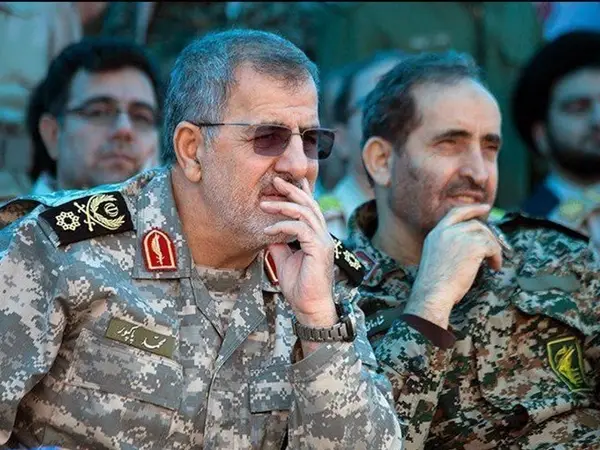The killing of all US leaders would not be enough to avenge the assassination of Qasem Soleimani, an Iranian Revolutionary Guard commander said on Wednesday.
"Martyr Soleimani was such a great character that if all American leaders are killed, this will still not avenge his assassination," commander of the Revolutionary Guards (IRGC) ground forces Mohammad Pakpour was quoted as saying by Iranian state media.
"We should avenge him by following Soleimani's path and through other methods," he added.
Pakpour referred to missile and other attacks against American targets and Israel as alternatives to killing US leaders.
Soleimani was killed in a targeted air strike by the orders of former president Donald Trump on January 3, 2020 in Baghdad. He was Iran's top military and intelligence operator in the Middle East, organizing militant groups in Iraq, Syria, Yemen and elsewhere to attack American targets and US allies in the region.
Since his death, Iranian officials have threatened revenge against former Trump administration officials, including Secretary of State Mike Pompeo.
The statement comes as nuclear negotiations that started more than a year ago in Vienna are in limbo since March, because of Tehran’s demand for the United States to remove the IRGC from its Foreign Terrorist Organization (FTO) list.
The Biden Administration so far has not accepted the demand, as bipartisan opposition in US Congress has grown to such a move. Pakpour’s statement might be intended to signal a retreat from the intention of killing American leaders, but it would hardly mollify those who aregue the IRGC is a terrorist organization.
However, reports have suggested Washington has been considering removing the IRGC from its foreign terrorist organization blacklist in return for Iranian assurances about reining in the elite force's influence in the Middle East.
Reports earlier also said that Washington might have offered Iran a solution to renounce any revenge against American leaders in exchange for removing IRGC as an FTO.
Then-US President Donald Trump’s administration said Soleimani was targeted for plotting attacks on US interests and that he had helped coordinate strikes on American forces in Iraq in the past through Iraqi Shiite militia proxies.
Pakpour's comments came days after US Army General Mark Milley, chairman of the Joint Chiefs of Staff, said that he does not support removing Iran's Qods (Quds) Force, an arm of its Revolutionary Guards, from a list of foreign terrorist organizations, as demanded by Tehran.
Trump abandoned the 2015 nuclear agreement, known as JCPOA, under which Iran had agreed to curbs on its nuclear program in return for the lifting of international sanctions. Trump said the agreement was weak and could not prevent Iran from obtaining nuclear weapons in the future. He also demanded Tehran stop its meddling in the region and arming militant proxy groups.
Proponents of removing the iRGC from the US terrorist list argue that the move will have little practical impact as other sanctions will remain in place. Opponents of the move say that the FTO list is not just symbolic, and many US anti-terror laws are based on a formal terror designation.
Iran's top authority, Supreme Leader Ayatollah Ali Khamenei, said on Tuesday that his country's future should not be tied to the success or collapse of nuclear talks with world powers.
